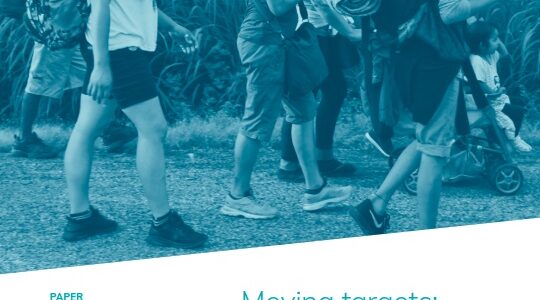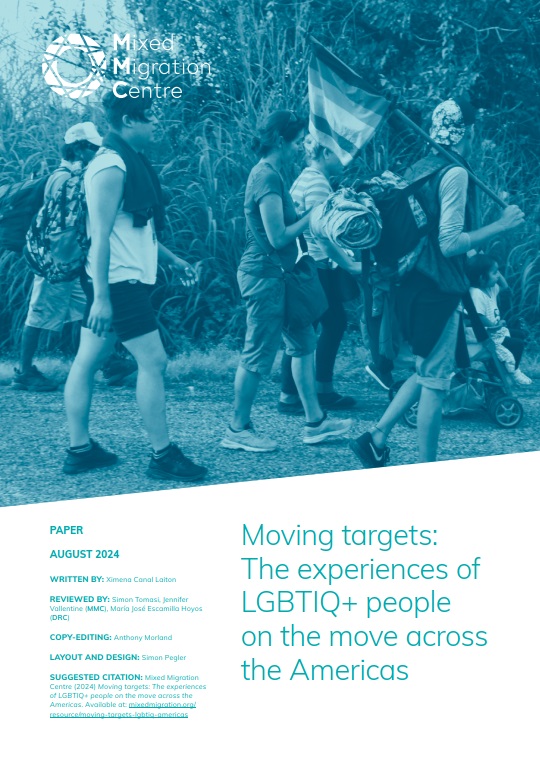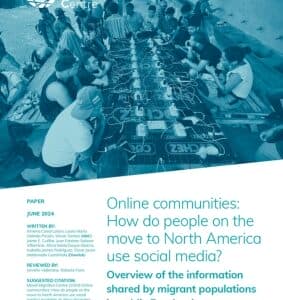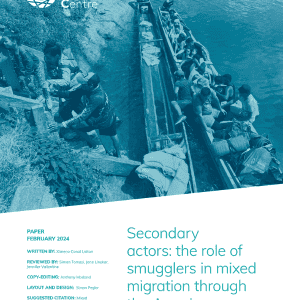
Moving targets: experiences of LGBTIQ+ people on the move across the Americas
LGBTIQ+ people on the move in Latin America can face significant risks of targeted violence and discrimination related to their sexual orientation, gender identity, and expression. This paper explores the experiences of LGBTIQ+ individuals travelling towards the United States from Latin America and the Caribbean. Data was gathered in Tijuana, Monterrey and Mexico City (Mexico) through the 4Mi project between September 2023 and March 2024.
Findings are based on 474 in-person surveys, with 131 LGBTIQ+ individuals and 343 non-LGBTIQ+ individuals to compare their migration experiences, along with 15 interviews with LGBTIQ+ migrants and key informants.
Download the full paper in English Descargar el informe en Español
Highlights
LGBTIQ+ phobia, discrimination and violence: a driver for migration
LGBTIQ+ individuals often migrate to escape discrimination and violence related to their sexual orientation, gender identity, gender expression, and sex characteristics (SOGIESC).
LGBTIQ+ phobia and violence on the migration route
Nearly all LGBTIQ+ individuals surveyed (98% of 131 respondents) indicated a high or very high level of exposure to risks related to their sexual orientation, gender identity, gender expression, and sex characteristics (SOGIESC).
91% of LGBTIQ+ respondents surveyed (119 of 131 respondents) said they experienced some form of LGBTIQ+ phobic incident themselves during their migration, mainly in Mexico and Guatemala.
Attacks against trans-women migrants were reported as relatively frequent by interviewees. They also said that attacks sometimes culminate in transfemicide or attempted transfemicide.
Surveyed trans women reported more frequent experiences of social discrimination than other LGBTIQ+ respondents.
Disparity in Perpetrators of Violence
Organised crime: LGBTIQ+ respondents identified members of organised crime groups as primary perpetrators of abuse to a far greater extent (73%) than the non-LGBTIQ+ group (42%).
Migrant perpetrators: While 38% of LGBTIQ+ respondents reported other migrants as the main perpetrators, only 5% of the non-LGBTIQ+ control group did the same. This difference can be attributed to the widespread presence of LGBTIQ+ phobia across diverse groups, including among migrants themselves.
Self-protection strategies
The two most common self-protection strategies reported by LGBTIQ+ respondents were careful planning of journeys and keeping in regular contact with friends and family.
Safe Space and other needs
LGBTIQ+ migrant interviewees and key informants stressed that access to safe spaces and shelters is essential for the protection of life and dignity of LGBTIQ+ individuals on the migration route. Psychological support is also a pressing necessity.
Methodology
Quantitative data was based on 474 in-person surveys conducted with individuals in transit in Mexico towards the United States. This included 131 individuals who identified as LGBTIQ+ and 343 individuals who didn’t. This allowed to draw comparisons between the migration experiences of the two groups.
Qualitative data was collected through 15 semi-structured interviews in Mexico: eight interviews with LGBTIQ+ migrants and seven with key informants from organisations that assist LGBTIQ+ migrants and refugees.


